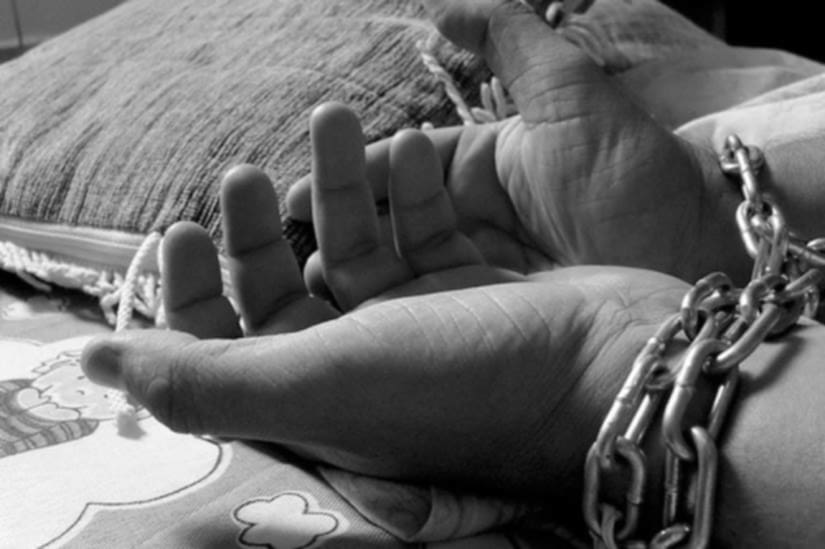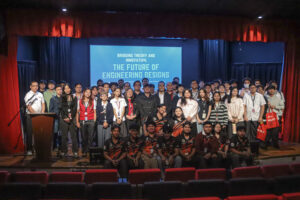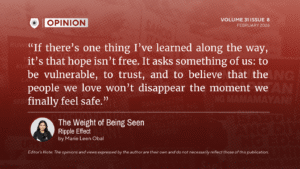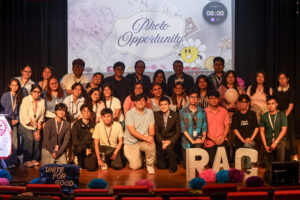By Lindy Lois S. Tiu | August 1, 2025
World Day Against Human Trafficking: Why This Day Matters
USUALLY described as “modern-day slavery,” human trafficking has existed since the 1500s, a period known as the Transatlantic Slave Trade. Currently, insufficient responses to justice have been acquired. Last July 30, the world recognized the World Day Against Trafficking in Persons, with the United Nations (UN) initiating the Blue Heart Campaign as a movement to raise awareness on this matter.
Human trafficking is the illegal recruitment of people for exploitation, which usually takes the form of forced labor, sexual exploitation, and forced criminality. Victims face coercion, violence, manipulation, and even the use of deceptive relationships to fall for this trap.
The Victims in Numbers
The cases of the said crime dropped significantly during the pandemic period. However, according to the UN’s global report, there was a 25 percent increase in the recorded cases in 2022, just two years after the pandemic.
Still, this data does not guarantee accuracy, as the unreported cases are believed to be higher. Patterns show that victims are usually trafficked from low-income places to high-income places, whether it be from country to country or domestically.
Women, regardless of age, make up the majority of human trafficking victims. In 2022, a total of 61 percent of the recorded victims were female. The number of child victims has also been increasing post-pandemic. Most trafficking cases are committed by organized crime groups operating in either business or governance structures. In some instances, however, close relatives such as parents are the perpetrators.
Voices and Causes Behind It
Poverty and the lack of access to education and jobs, among others, are underlying causes of human trafficking. This is proven through the story of a victim who survived with the help of the International Justice Mission (IJM). Jolie, a 15-year-old girl living in the province, was promised a job in Manila. It was only until she was trapped in a bar, away from her family, that she learned that her vulnerability had been taken advantage of. The case took four years in trial before her traffickers were convicted. Her courage to escape saved eight other victims in the same bar where she was working.
Even climate change can affect the cases of human trafficking, and this is mostly seen in Africa. With changes in weather being more extreme, a lot of families struggle with floods and drought longer, forcing them to leave their homes. Cases like this and other conflict-related displacements increase the risk of civilians being vulnerable to trafficking as they face cultural and social isolation.
The Fight Against Human Trafficking
The UN Office on Drugs and Crime was joined by 45 countries, including the Philippines, on the Blue Heart Campaign. Other organizations that help fight against human trafficking include Polaris, The Exodus Road, and Arise. They begin with raising awareness among civilians, training and education for law enforcement personnel, and aftercare, helping victims through therapy, shelter, and opportunities to start anew.
Governments of different countries are urged to improve the identification of victims. By providing social workers with proper training, the risk of revictimization can be further prevented. Nations are also encouraged to broaden their counter-trafficking framework and understanding.
Over the years, the forms of exploitation for trafficking victims have become more diverse. The misconception that it revolves around sexual exploitation leads to the issue that other cases of trafficking remain unidentified and unattended.
Your Role in Ending it
As for individuals, they can participate in this movement by raising awareness on this issue and by spreading the word about the campaign. The Blue Heart Campaign also accepts donations, which shall go directly to the United Nations Trust Fund for Victims of Trafficking in Persons, which has successfully funded 215 projects across more than 60 countries.
Nation’s United Response
In the Philippines, there were 890 human trafficking victims recorded in 2024; 545 of which identified as sex trafficking victims, and 345 as labor trafficking victims.
Under the law, they are provided with free legal services, temporary shelter, and medical & psychological assistance. As for their protection, they have the right to confidentiality, which means that their personal information shall not be disclosed to the public at any stage during the investigation until the trial. The government also partners with NGOs to constantly monitor the areas that need funding and protection the most.
As human trafficking continues to be a global threat, we cannot afford to be complacent by solely leaving it in the hands of the government. It is the collective responsibility of the society to stand up for the victims of Human Trafficking.




